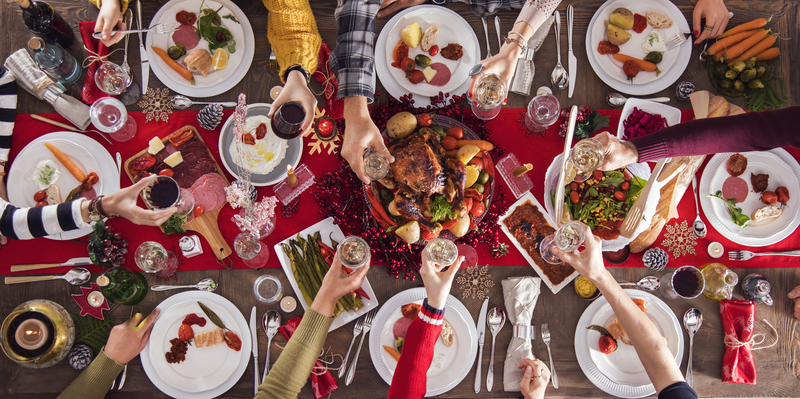Winter holidays are a delightful time for many people. Enjoying the company of loved ones, giving and receiving presents and singing festive songs are all great ways of celebrating. However, there is something so essential to these holidays, that the festivities wouldn’t be the same without it: special food. We all have our favourite Christmas food…so simple, it would seem, yet it is not. Some of the most popular food items hide some bedazzling science but worry not: we are here to unveil their secrets.
Loathe Brussel sprouts? Blame your genes

Every single cell in your body contains very important information written in the form of genes. Genes are made up of DNA, and they are passed on from our parents. Genes determine certain simple traits, such as eye or hair colour, but they can do so much more. They can influence our personality, behaviour and even what food we like!
Taste is a very complex trait, and it can be influenced by many things. From which foods your mother ate while you were in her womb to any negative experiences related to a specific meal; our taste can change and evolve throughout our life. However, there are certain aversions that will never change, and this is because they are mostly caused by our genes. Back when we were cavepeople, bitter foods were mostly poisonous and bad for us. Due to this, some people developed the “superpower” of detecting even the smallest hint of bitterness, thus protecting themselves from intoxication. Nowadays, some delicious food items are bitter, but they mean no harm to us; however, people who still have this “superpower” will feel their bitterness multiplied, making that particular food horrid to taste. So next time you are ready to bin your Brussel sprouts, tell your mum: it’s not my fault, my genes made me do it!
Extra potatoes? Watch out for the poison

Salads are usually made with raw vegetables, such as lettuce or tomato. However, potato salad is made of cooked potatoes, and it does not even have potato leaves! Have you ever wondered why?
The potato is a starchy root vegetable, which originated in the Americas and then introduced to Europe in the 16th century. Since then, potatoes have become a very important vegetable in the everyday lives of millions of people, due to their cheap farming and cooking versatility. But not everything in the potato garden is rosy. The potato plant has developed a mechanism to protect itself from predators: it contains toxic compounds known as glycoalkaloids, which do no harm to the plant itself but, if ingested by us, can cause awful symptoms including headaches and diarrhoea. These compounds are mostly present in the outside parts of the plant, such as the leaves and flowers. Nevertheless, the plant never anticipated predators (such as humans) to eat their roots. The concentrations of harmful compounds in this location is lower but eating it would still make us feel ill. Lucky for us, when the potato is cooked at high temperatures (over 170 °C) glycoalkaloids get destroyed, making it safe (and delicious) to eat.
Just one more Christmas biscuit

Gingerbread, Christmas pudding, Yule log… Winter festivities are usually filled with many deliciously sweet desserts and chocolates that are enjoyed by adults and kids alike. But, why do we like sugar so much?
Sugars are carbohydrates found naturally in many foods. They are a great fuel for our body because they provide lots of energy, but that is not always good: if we eat more calories than we use in a day, the leftovers will be stored in our bodies in the form of fat. However, their delicious sweet taste might tempt us to eat one more biscuit, just one more bite.
Back in the day when people did not have much to eat, a food rich in sugars was a treasure: consuming it would give you enough energy to do so many things that you would otherwise not be able to do! Due to this, we learned to like carb-packed sweet foods, even though most of us do not need the extra energy intake nowadays. Although it is important to eat sugar for its energy values, it is essential to keep it under a limit: eating too much sugar during a long period of time can bring bad consequences, such as weight gain or skin problems or, in the worst cases, insulin resistance and prediabetes. The general recommendation is choosing healthy sweets, such as nutrient-filled fruit, and cutting down on refined sugars. But, if you have a balanced diet and healthy lifestyle, eating that extra biscuit once in a while will not hurt!



Rate and Review
Rate this article
Review this article
Log into OpenLearn to leave reviews and join in the conversation.
Article reviews